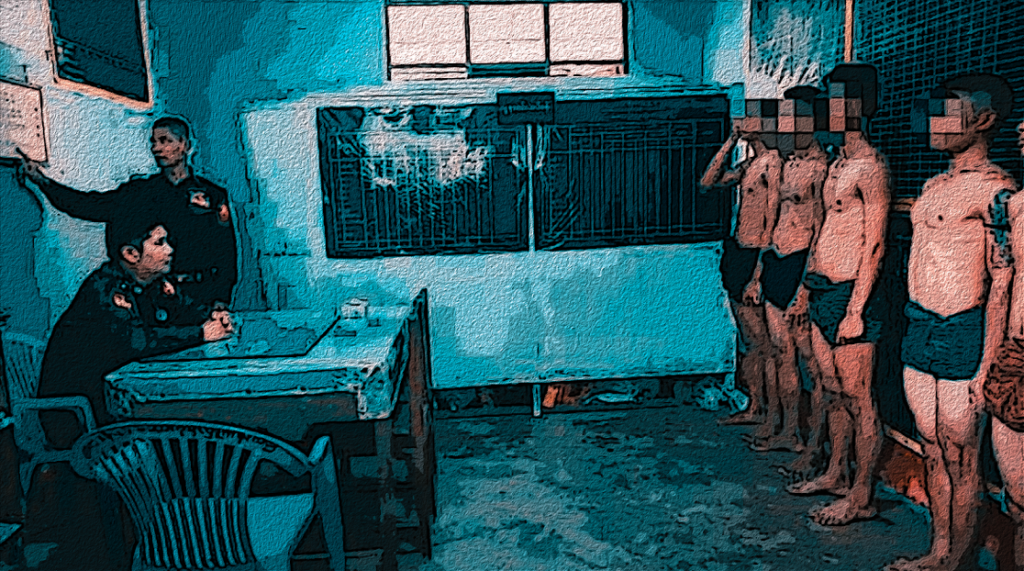Myanmar Spring Chronicle – December 08
MoeMaKa, December 9, 2023
Military Council Adopts Unconventional Recruitment Strategies
As the Military Council faces relentless attacks on multiple fronts, it resorts to unconventional methods to replenish its diminishing military strength. Recent reports indicate a surprising recruitment tactic, wherein ex-servicemen serving sentences in prisons are offered release on parole in exchange for joining the military in its current combat operations. Following the military coup in February 2021, public disdain for the military has surged, leading to a significant decline in recruitment, even for officer courses like the Defense Service Academy.
Traditionally, the Myanmar military predominantly drew recruits from ethnic areas and regions with a majority of Burmans, such as Mandalay, Sagaing, and Magway in Upper Myanmar. Young individuals from rural areas, faced with limited job prospects, often pursued careers in agriculture or sought work as migrant laborers abroad. Alternatively, some chose military recruitment. This pattern has persisted for decades, with Rakhine and Chin communities, less affected by ethnic armed group activities, being among the primary sources of recruits.
The recruitment of Rakhine individuals witnessed a decline after the initiation of the Rakhine armed movement in 2009. Ethnic groups like Shan, Karen, Karenni, Pa-O, Kachin, and Mon, having long-standing armed groups, typically undergo thorough background checks before recruitment.
Since 2021, armed organizations opposing the military have emerged from various ethnic groups, complicating military recruitment efforts. The military council’s actions in regions like Sagaing in central Myanmar have made recruitment challenging, except among those supporting the USDP party, aligned with the military.
After 2011, during President U Thein Sein’s tenure, promises were made to avoid forced recruitment and adhere to international standards regarding child soldiers. Efforts were made to screen and return child soldiers to their families, contributing to a decline in military recruitment. Additionally, increasing awareness of foreign employment opportunities led more people to seek work in neighboring countries like Malaysia, further hindering military recruitment.
Since late 2021, people’s defense forces have emerged in various regions, actively opposing the military council with armed resistance. Young individuals from diverse ethnic backgrounds, including Burmans, are joining armed forces, undergoing military training, and awaiting opportunities to confront the military council. By the end of 2023, the opposition forces and the military council’s army are poised for a significant confrontation.
Recognizing the growing public resentment towards the military, the military council refrains from enforcing laws mandating military service for all adults. Instead, the focus appears to be on recruiting veterans, deemed trustworthy and less likely to be swayed by revolutionary forces due to their military background.
Drawing inspiration from recent global events, particularly the Russian-Ukrainian conflict, where the Russian government mobilized criminals from prisons, managed by mercenary groups like Wagner, Myanmar’s Military Council seems to have adopted a similar strategy. The recruitment of ex-service soldiers from prisons is presumed to have been expedited in exchange for their pardon on National Day, observed on December 7. Telegram channels associated with the military council have propagated messages claiming the release and recruitment of numerous veterans on National Day, destined to serve in ongoing conflicts. Subsequent reports from RFA confirmed the release of over 100 deserters from Pathein Prison, transported to the Southwestern Military Command.
This unconventional recruitment approach may be replicated in prisons across various states and divisions, signaling the military council’s last-ditch effort to bolster its forces using prisoners, akin to tactics observed in Russia.
Related Posts
- Wars, the Possibility of Food Shortages, and the Chance of Survival
- International Attention on Rakhine State
- Fierce Fighting Continues in Kachin State
- The Rakhine State Conflict and the Potential for Complications: Outcomes of the Haigen Dialogue in Yunnan Province
- The various hardships and dangers accompanying the war
- How will governance and public services emerge from the liberated territories?

